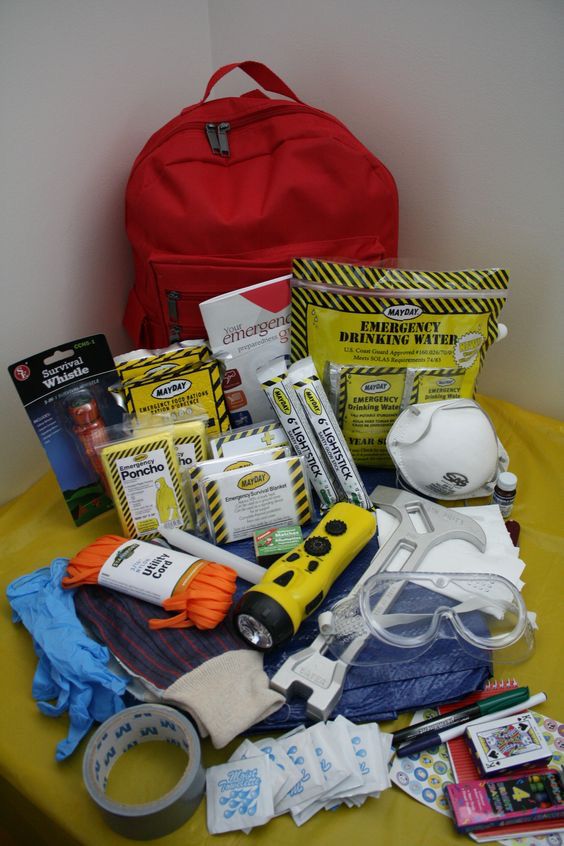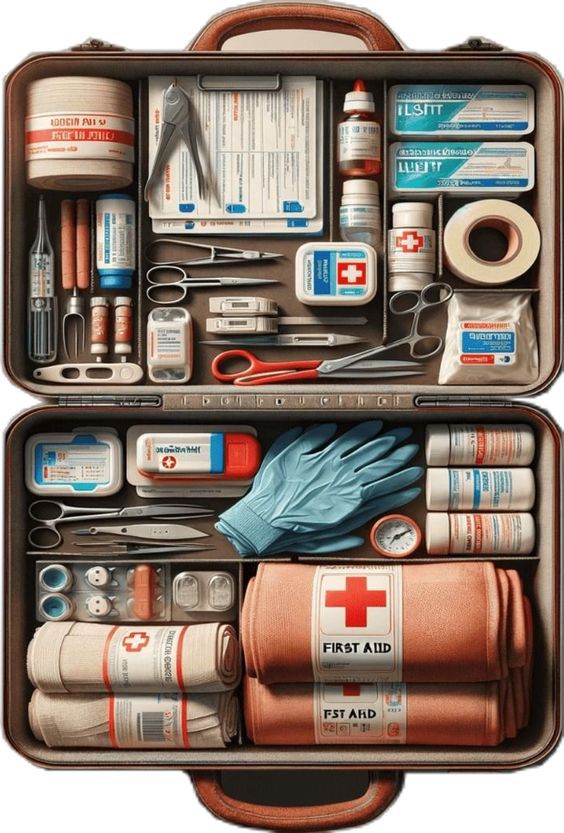
Have you ever been caught in the middle of cooking when the lights suddenly went out, or woken up in the night to find water rushing into your home after heavy rain? For many Ghanaians, these moments are all too familiar. In fact, according to Ghana’s National Disaster Management Organization (NADMO), thousands of households are affected by flooding and fire incidents each year;https://gna.org.gh/2025/06/keta-nadmo-appeals-for-urgent-support-to-safeguard-flood-stricken-pupils-in-lawoshime/ this proves that emergencies often strike without warning.
The good news? You don’t have to live in constant fear. With a little planning and the right tools, you can transform your home into a safe haven for your family, no matter what happens outside your door. In this guide, we’ll share practical, easy-to-follow home emergency tips designed for Ghanaian residents and whether you own a home, rent an apartment, or live with family. Let’s get you ready, not scared.
Understand the Most Common Home Emergencies in Ghana
Being prepared starts with knowing the most likely emergencies that can affect homes in Ghana. Awareness is the first step in any effective home emergency tips strategy.

Heavy Rains and Flooding
During the rainy season, heavy rains can quickly lead to flooding, damaging property and disrupting daily life. NADMO reports that thousands of households, especially in Accra and Kumasi, face flood-related challenges each year.
Power Outages (Dumsor)
Frequent electricity cuts are a reality for many homeowners and renters in Ghana. Sudden blackouts can disrupt cooking, work, and even critical medical devices, leaving families vulnerable if they are unprepared. Incorporating home emergency tips specifically for dumsor—such as keeping flashlights and candles accessible, having a portable power bank, and knowing how to safely operate a generator—can ensure that you and your household stay safe and functional during outages. Planning ahead for power interruptions is an essential part of creating a resilient and secure home environment.
Fire Outbreaks
Faulty wiring, unattended stoves, or careless use of candles can quickly turn minor incidents into major fires, posing a serious risk to both property and lives. Following home emergency tips for fire safety can make all the difference. Install smoke detectors in key areas like the kitchen and bedrooms and regularly check that they are functioning properly.
Keep fire extinguishers within easy reach and ensure all household members know how to use them. Avoid leaving cooking unattended and safely store flammable items away from heat sources. By taking these precautions, you significantly reduce the risk of fire emergencies in your home. https://www.zameen.com/blog/common-home-emergencies-solutions.html
Home Break-Ins and Security Issues
Burglaries and home invasions occur in urban and suburban areas alike. Secure doors and windows, alarms, and regular safety routines are key steps to safeguard your property and family.
Minor Medical Emergencies

Cuts, burns, sprains, or sudden illnesses can occur at any time, often when you least expect them. One of the most essential home emergency tips is to keep a well-stocked first-aid kit readily accessible. Include items like antiseptic wipes, bandages, gauze, adhesive tape, burn cream, pain relievers, and any prescribed medications.
Equally important is knowing how to use these supplies correctly, whether it’s cleaning a wound, applying a bandage, or treating a minor burn. Regularly check expiration dates and replenish items as needed.
By preparing for minor medical emergencies, homeowners and renters can respond quickly, prevent complications, and ensure the safety and well-being of everyone in the household.
Water Shortages
During the dry season, many communities in Ghana experience water scarcity, which can disrupt daily routines, hygiene, and household activities.
One of the most important home emergency tips for dealing with water shortages is to store a sufficient supply of clean water in advance. Consider keeping at least three days’ worth of water per household member in sturdy, covered containers.
Additionally, having water purification tablets or a portable filter on hand can ensure safe drinking water when regular sources run dry.
Planning ahead for water scarcity not only safeguards your family’s health but also ensures your home continues to function smoothly during emergencies.https://ccspps.com/10-essential-tips-to-handle-a-water-emergency-in-your-home-stay-prepared-and-protect-your-property/
Build a Simple Home Emergency Kit
Creating a home emergency kit is one of the most practical home emergency tips you can follow. https://www.homesecurehq.com/exploring-built-kits/
Essentials to
- Water – at least a three-day supply per person
- Non-perishable food
- First-aid kit
- Flashlights, candles, and batteries
- Portable power bank
- Important documents in waterproof bags
- Whistle, face masks, and hand sanitizer
- Emergency cash stash
Having these items ready ensures both homeowners and renters can respond quickly to unexpected situations, making their homes safer and more prepared for any emergency.
Safety Measures for Your Home
Implementing practical safety measures is a cornerstone of effective home emergency tips. Small, thoughtful changes around your home can prevent accidents, reduce risks, and keep your family safe when emergencies strike.
Home Security and Burglary Prevention
Ensure that all doors and windows have sturdy locks, and consider installing motion-sensor lights or a security system to deter break-ins.
Regularly check locks and reinforce weak points to make your home more secure. Teaching family members simple security routines, such as locking doors at night, adds another layer of protection.
Fire Safety Measures
Install smoke detectors in key areas like the kitchen and bedrooms and keep fire extinguishers within easy reach. Regularly test devices to ensure they are functioning. Avoid leaving stoves or candles unattended and store flammable items safely. These steps are essential home emergency tips to prevent fire outbreaks.https://en.wikipedia.org/wiki/Fire_safety
Electrical and Utility Safety
Regularly inspect wiring, avoid overloading outlets, and unplug unused appliances to prevent electrical fires. Homeowners and renters should also know how to quickly turn off the main water, gas, and electricity lines in case of leaks, floods, or other hazards.
Safe Zones and Emergency Planning
Identify structurally secure areas in your home that can serve as safe zones during storms, floods, or other emergencies. Teach all family members how to reach these zones quickly. Knowing safe spots and having a plan in place is a key part of any effective home emergency tips strategy.
By implementing these practical measures, you create a safer environment, reduce potential damage, and ensure that everyone in your household knows how to respond confidently when an emergency occurs. Small steps today can prevent major problems tomorrow.
Water and Hygiene Safety
During emergencies like floods or water shortages, maintaining hygiene is critical. Store clean water in advance and keep hand sanitizers and face masks accessible. Ensure toilets and sinks are functional, and have a plan for safe water usage during shortages.
Family Emergency Planning
Part of essential home emergency tips is creating a family plan. Identify safe spots in the home, designate meeting points, and ensure everyone knows emergency contacts. Practicing drills for fire, flood, or security threats helps your household respond calmly and effectively https://www.zameen.com/blog/common-home-emergencies-solutions.html
Practical Tips for Everyday Readiness
Even with emergency kits and safety measures in place, small daily habits can make a huge difference. These home emergency tips help homeowners and renters stay prepared for unexpected situations.
Keep Important Contacts Handy
Maintain a list of emergency contacts—including local hospitals, NADMO, fire stations, and trusted neighbors. Store these numbers both digitally and on paper in case your phone runs out of battery during a power outage.
Maintain Your Home Regularly
Regular inspections of electrical wiring, plumbing, and structural areas can prevent emergencies before they happen. Clean gutters to avoid flooding, check smoke alarms monthly, and replace worn-out locks or security features promptly.
Prepare a Mini “Go-Bag”
A small grab-and-go bag with essentials like water, snacks, first-aid supplies, flashlight, and emergency cash ensures you’re ready to leave quickly if needed. Keep one in an accessible spot for all family members.
Backup Important Documents
Store copies of IDs, property papers, and medical records in waterproof folders or digital backups. This protects vital information during floods, fires, or thefts.
Stay Informed
Keep up with local news, weather updates, and alerts from NADMO or other authorities. Knowing about potential floods, storms, or power outages ahead of time allows you to act proactively.
Encourage Family Participation
Make home emergency preparedness a family activity. Teach children how to use safety equipment, explain evacuation routes, and practice fire or flood drills. The more familiar everyone is with procedures, the more confident and safe your household will be.
Maintain Health Precautions
Keep basic hygiene supplies, face masks, and hand sanitizers accessible, particularly during floods or water shortages. Regularly checking expiration dates on first-aid supplies ensures readiness at all times.
Communication and Staying Informed During Emergencies
Effective communication is a cornerstone of any home emergency tips strategy. Knowing how to get information quickly and alert others can save lives and prevent unnecessary panic.
Establish a Family Communication Plan
Create a clear family communication plan so everyone knows how to reach each other during an emergency. Designate a primary contact outside your local area who can act as a central point of communication if local networks fail. Share phone numbers, email addresses, and social media contacts, and make sure each family member has access.
Use Multiple Communication Channels
Relying on a single communication method can be risky. Keep phones charged, have a portable power bank, and consider a battery-operated radio for updates on floods, storms, or power outages. Messaging apps like WhatsApp or SMS can be useful, but always have a backup plan in case internet services go down.
Connect with Local Authorities and Community Networks
Stay in touch with local organizations such as NADMO, the Ghana Fire Service, and community watch groups. These authorities provide real-time updates and can assist with evacuation or disaster response. Joining neighborhood WhatsApp groups or community social media pages can also help you receive early warnings.
Document Emergency Procedures
Ensure all family members know the steps to take for different scenarios, whether it’s a fire, flood, or burglary. Keep a written or printed emergency plan in an accessible place, outlining contacts, safe spots, and evacuation routes. This ensures quick action and reduces confusion when every second counts.
Practice Regular Drills
Conduct regular drills at least twice a year. Practice evacuating the home, using fire extinguishers, or moving to safe zones during floods. Familiarity with procedures reduces fear and increases efficiency during real emergencies
Emergencies don’t give warning, but your preparation can make all the difference. By following these home emergency tips, you’re not just protecting your home but you’re safeguarding your loved ones, your property, and your peace of mind. Every step you take today, from assembling a simple emergency kit to practicing family drills, puts you one step ahead of unexpected situations.
Don’t wait until it’s too late. Subscribe to our newsletter for more practical tips, share this guide with friends and neighbors so they can stay prepared too, and comment below with your own emergency strategies or questions. Your small action could inspire someone else to make their home safer and that’s a difference that matters.
Take charge now, stay ready, and turn your home into a safe haven, no matter what surprises life throws your way. Start your preparation today, because being ready is always better than being caught off guard.
